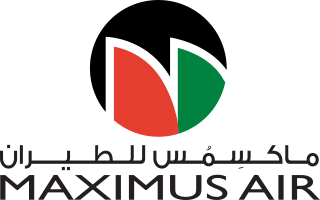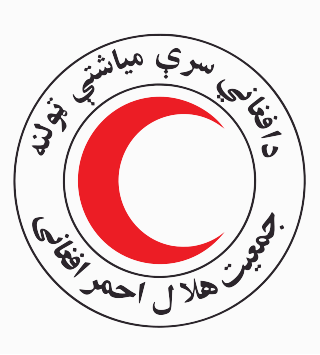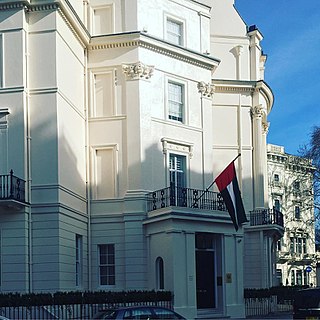Related Research Articles

The United Arab Emirates is a country in the eastern part of the Arabian Peninsula located on the southeastern coast of the Persian Gulf and the northwestern coast of the Gulf of Oman. The UAE consists of seven emirates and was founded on 2 December 1971 as a federation, after UK armed forces left the region. Six of the seven emirates declared their union on 2 December 1971. The seventh, Ras al Khaimah, joined the federation on 10 February 1972. The seven sheikdoms were formerly known as the Trucial States, in reference to the truce treaties established with the British in the 19th century.

Demographic features of the United Arab Emirates (UAE) include population density, vital statistics, immigration and emigration data, ethnicity, education levels, religions practiced, and languages spoken within the UAE.

The United Arab Emirates (UAE), or simply the Emirates, is a country in West Asia, in the Middle East. It is located at the eastern end of the Arabian Peninsula and shares borders with Oman and Saudi Arabia, while also having maritime borders in the Persian Gulf with Qatar and Iran. Abu Dhabi is the country's capital, while Dubai, the most populous city, is an international hub.

The flag of the United Arab Emirates contains the Pan-Arab colors red, green, white, and black. It was designed in 1971 by Abdullah Mohammed Al Maainah, who was 19 years old at that time, and was adopted on 2 December 1971 after winning a nationwide flag design contest. The main theme of the flag's four colors is the sovereignty and unity of the Arab states.

The United Arab Emirates national football team represents United Arab Emirates in international football and serves under the auspices of the country's Football Association.

Sheikh Khalifa bin Zayed bin Sultan Al Nahyan was the second president of the United Arab Emirates and the ruler of Abu Dhabi, serving from November 2004 until his death in May 2022.

Lesbian, gay, bisexual and transgender (LGBT) people in the United Arab Emirates face legal challenges not experienced by non-LGBT residents. Homosexuality is illegal in the United Arab Emirates (UAE) and under the federal criminal provisions, consensual same-sex sexual activity is punishable by imprisonment; extra-marital sexual activity between persons of different sexes is also illegal. In both cases, prosecution will only be brought if a husband or male guardian of one of the participants makes a criminal complaint. The penalty is a minimum of six months imprisonment; no maximum penalty is prescribed, and the court has full discretion to impose any sentence in accordance with the country's constitution.

The emblem of the United Arab Emirates was officially adopted on 9 December 1973 ; it was later modified in 2008. It is similar to the coats of arms and emblems of other Arab states.
The United Arab Emirates Football Association is the governing body of association football, beach soccer and futsal in the United Arab Emirates.

The president of the United Arab Emirates, or the Raʾīs, is the head of state of the United Arab Emirates (UAE).

Maximus Air is a cargo airline based at Abu Dhabi International Airport in the United Arab Emirates.

The Emiratis are the native citizen population of the United Arab Emirates. Within the UAE itself, they number approximately 1.15 million.

The Afghan Red Crescent Society(ARCS; Pashto: د افغاني سرې میاشتې ټولنې; Persian: جمعیت هلال احمر افغانی) is the Afghan affiliate of the International Federation of Red Cross and Red Crescent Societies. The Society has existed for over 70 years although with limited structure due to the prevailing conditions which have affected the country at large for over 20 years. The current president is Matiul Haq Khalis and deputy president is Nooruddin Turabi.

Kosovo–United Arab Emirates relations are foreign relations between Kosovo and the United Arab Emirates.
The United Arab Emirates national under-17 football team represents the United Arab Emirates in international under-17 football competitions and is controlled by the United Arab Emirates Football Association.

Hamdan bin Zayed bin Sultan Al Nahyan is an Emirati royal and politician. He is the ruler's representative in Al Dhafrah region of Abu Dhabi. Sheikh Hamdan is a son of the late Zayed bin Sultan Al Nahyan, President of the United Arab Emirates and Emir of Abu Dhabi. Hamdan is the younger brother of both former UAE president Khalifa bin Zayed and the current president, Mohamed bin Zayed.

The Embassy of the United Arab Emirates at 1-2 Grosvenor Crescent in the Grosvenor Crescent district of London, is the diplomatic mission of the United Arab Emirates in the United Kingdom. The UAE also maintains a Consulate, Police Liaison Section & Cultural Attaché's office at 48 Prince's Gate, South Kensington, a Military Attaché's Office at 6 Queen's Gate Terrace, South Kensington and a Health Section at 71 Harley Street, Marylebone.

On 30 April 2018, the United Arab Emirates (UAE) deployed more than a hundred troops with artillery and armored vehicles to the Yemeni archipelago of Socotra in the Guardafui Channel without prior coordination with the Yemeni government, causing the relations of the two countries to deteriorate. The initial deployment consisted of UAE military aircraft carrying more than fifty UAE soldiers and two armored vehicles, followed by two more aircraft carrying more soldiers, tanks and other armored vehicles. Al Jazeera reported that shortly after landing, UAE forces dismissed Yemeni soldiers stationed at administrative installations such as Socotra Airport and seaports until further notice, and the flag of the United Arab Emirates was raised above at official government buildings in Hadibu. On 14 May an agreement was reached between the UAE and Yemen which saw Yemen regain administrative control and Saudi Arabian troops also being deployed to the island.

The UAE and Yemen have a complex and strained relationship, as the UAE has played a significant role in regional politics in Yemen, and has at various points been an adversary of the country, as the UAE's involvement in Yemen, for example the United Arab Emirates takeover of Socotra, and its support for the Southern Transitional Council, a secessionist organization in Southern Yemen, has been a source of tension between the two countries, and has contributed to the ongoing conflict and humanitarian crisis in the country. Furthermore, the UAE has been involved in other efforts in Yemen that have been controversial. The country has been accused of backing local militias and separatist groups that have sought to gain more autonomy or independence from the central government. Some critics have accused the UAE of using these groups to further its own interests in the region, rather than working towards a broader peace and stability in Yemen.